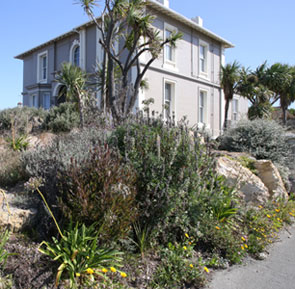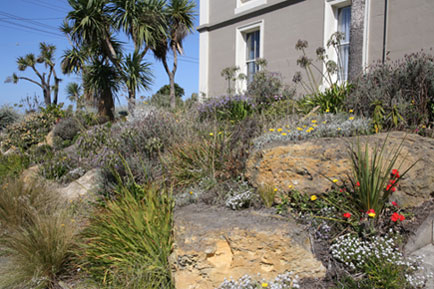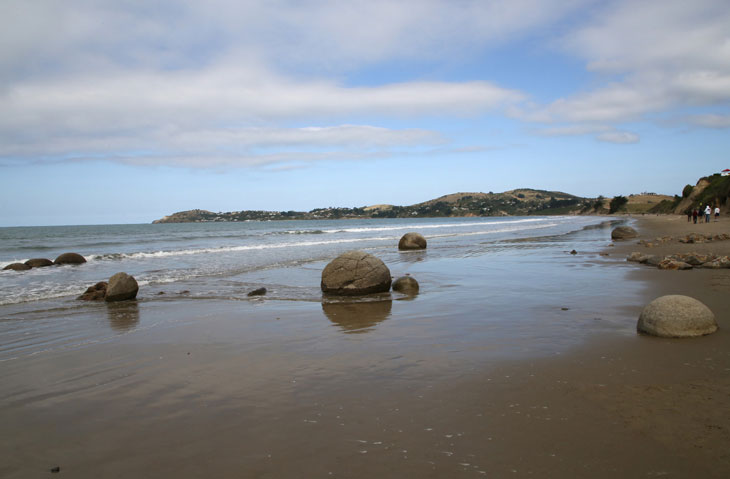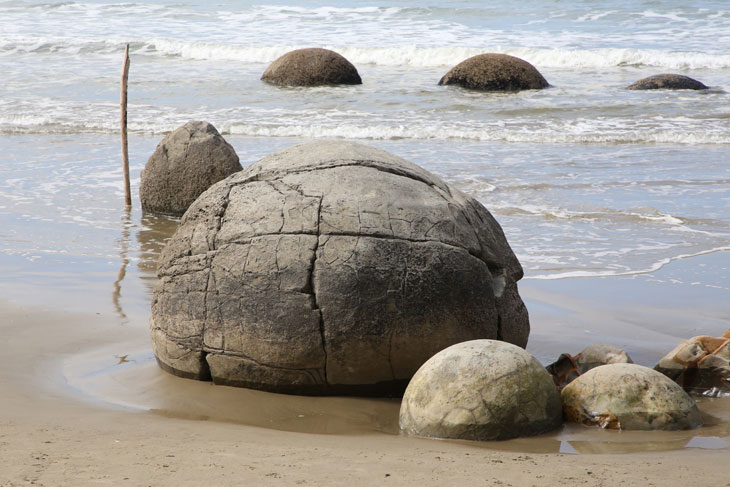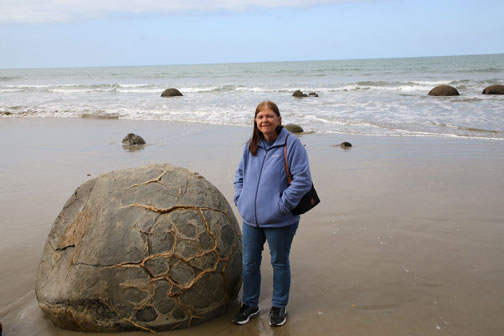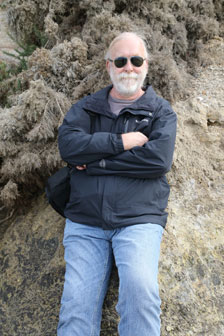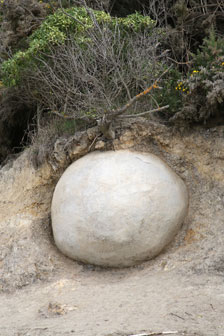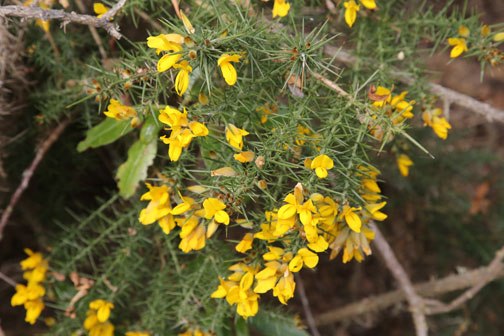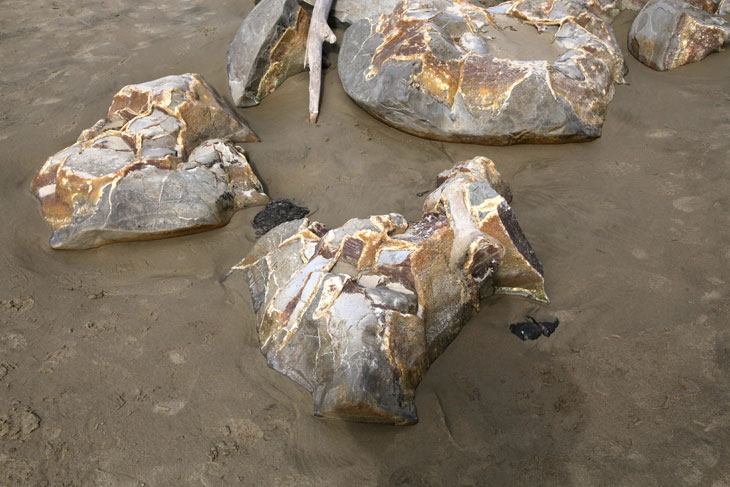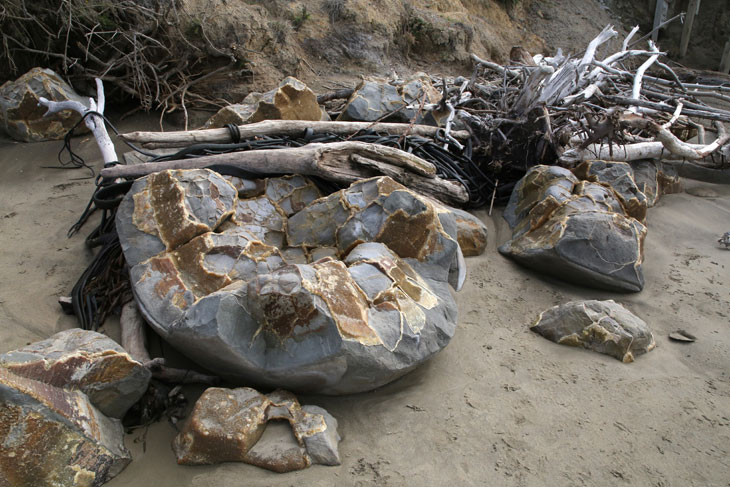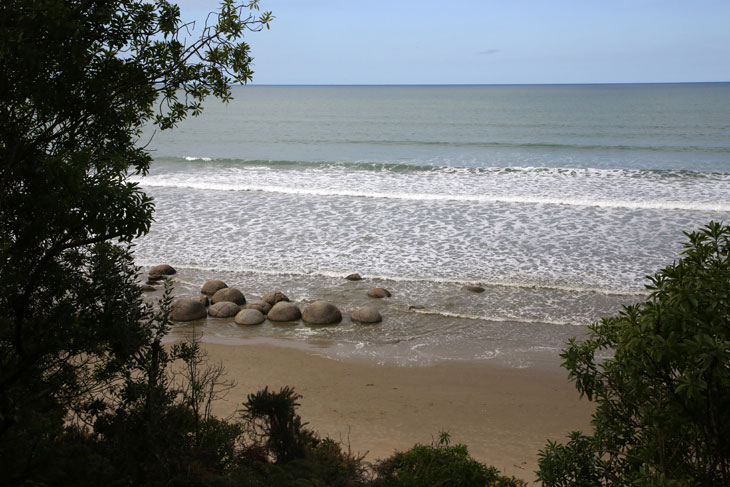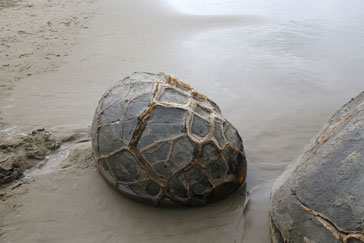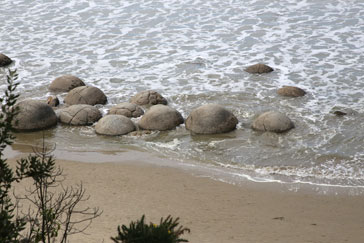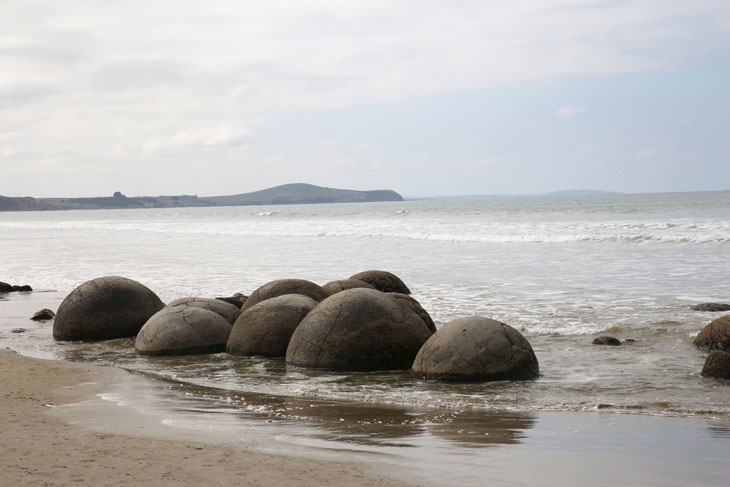Moeraki Boulders
News about COVID-19 was starting to displace news about everything else. The number of cases was rising
rapidly in Europe, Italy was locking down, and the disease was spreading quickly in New York and California.
Normal everyday life was changing, but it was all happening so far away. There were only a couple of cases
in all of New Zealand. We felt a bit nervous about squeezing into the hotel elevator if it was already packed
with Europeans, but other than that, we were generally unconcerned.
We picked up a rental SUV at the airport and were soon on the highway heading south to Dunedin. Our first day
of driving was a long one - about 5 hours. The web page that served as our guide recommended stopping in several
towns on the way, but most of them held little of interest to us. We drove right past Ashburton with his museums
and craft galleries but paused briefly in Timaru to catch a glimpse of Caroline Bay which is reputed to be one
of the most popular beaches on the South Island. We were so unimpressed we didn't even take a picture.
We carried on to Omaru which boasts a colony of little blue penguins and a steampunk museum, but it seems that
the penguins are mostly inactive in March and time was passing too quickly to stop at the museum. We had a snack
and I tried to walk down to the beach but a high fence separated me from it. I was impressed, though, by this
house and its quirky garden.
We drove on to the very impressive Moeraki Boulders. There are about 50 of these large boulders strewn out on the
beach, but in the 19th Century, there were even more. In spite of the fact that they weigh several tons, some people
have managed to remove them. One was even found in Australia.
The boulders were formed by a process called concretion. They started as small pebbles in the mud of the Paleocene
sea floor, but over a period of millions of years, their size very slowly increased as the mud built up layer by
layer around the pebbles and calcified. About 15 million years ago, cliffs were formed when the mudstone was lifted
above the sea, and subsequent erosion by the waves began releasing the boulders from the cliffs.
In the picture below, you can see a boulder which has partially emerged.
Some of the boulders are breaking apart.
There is a trail where you can climb a short distance above the beach and look down at the boulders.
We spent a pleasant hour enjoying the beach before making the final push to our lodging.
In an attempt to avoid city traffic I had booked a motel just off the highway to the south of the city, but,
surprisingly, the highway morphed into a road that went right through the center of town. To make matters even
worse, we arrived at rush hour. Suddenly huge trucks surrounded us and the lanes seemed much too narrow. We
gritted our teeth and motored on through.
After awhile, it became apparent that we must have missed a turn and gone too far so we reluctantly turned
around, headed back, and eventually arrived at our destination.
It was a bit of a hike to the pub we eventually settled on for dinner, but we had no desire to drive any more
that day.
